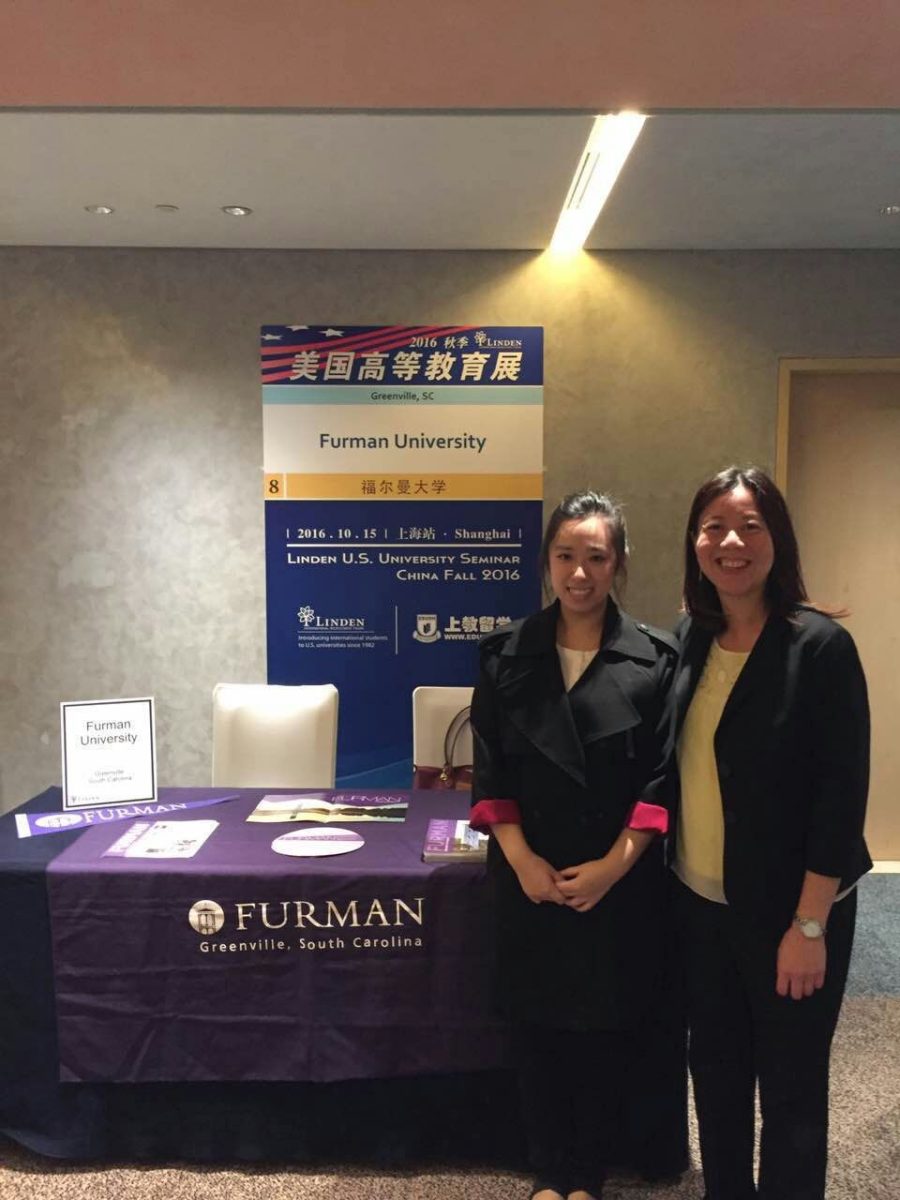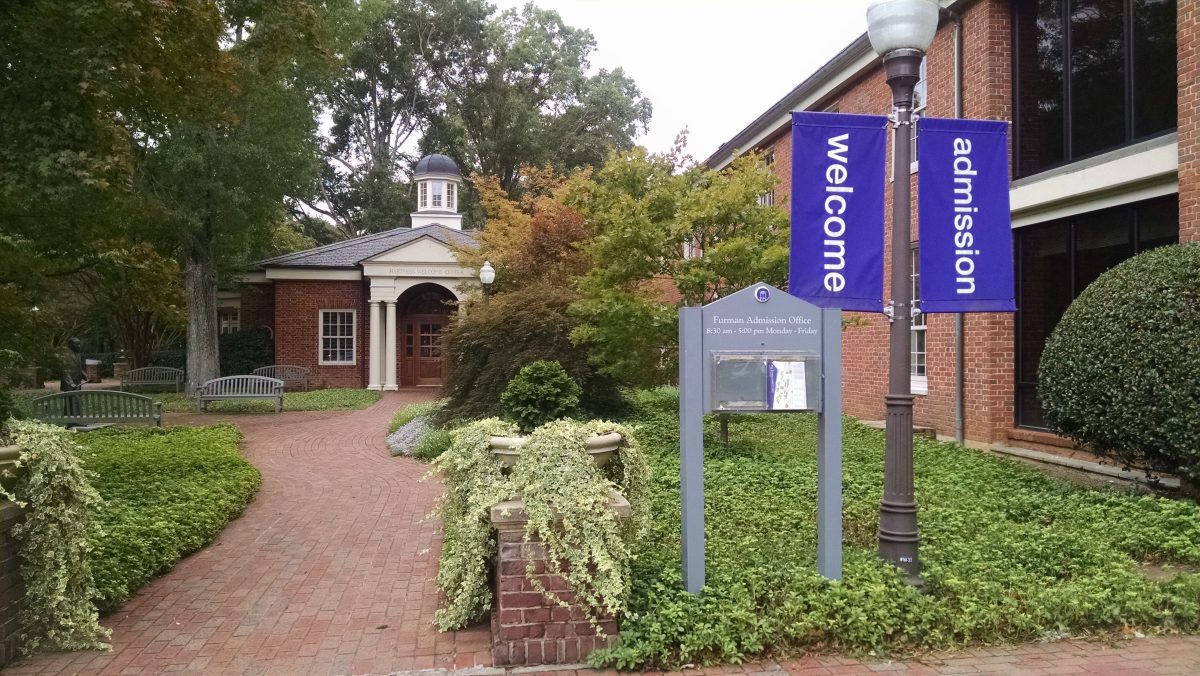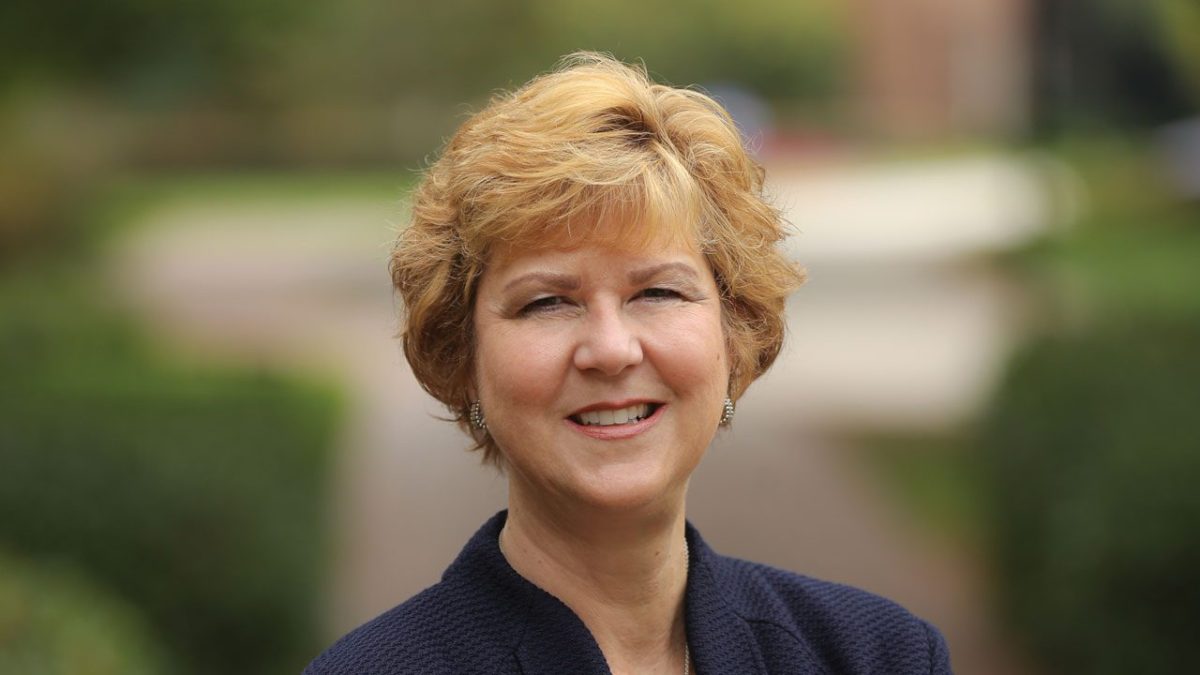
Last August Furman announced a plan to turn the six acres along Poinsett Highway at the university’s entrance into a 743-kilowatt solar farm. The project will cost $1.7 million and create both a symbol of Furman’s commitment to sustainability as well as an educational opportunity for students and the larger community.
“This solar project, the largest of its kind for a South Carolina college campus, highlights our ongoing efforts to become a more sustainable campus and moves us another step toward our path to become carbon neutral. The high visibility of the project along Poinsett Highway stands as a testament to our commitment and transition to cleaner renewable energies,” said President Elizabeth Davis in an interview with the Greenville News.
The completed farm will reduce Furman’s energy expenditures by up to five percent, and it will also reduce greenhouse gas emissions by three percent. These are important figures for the university’s Climate Action Plan, which aspires to make Furman carbon neutral by 2026. Reaching carbon neutrality would mean that Furman does not contribute any greenhouse gases emissions through any campus related activities.
Acting in conjunction with the American College & University Presidents Climate Commitment, Furman submits an annual GHG Emissions Report, which in 2014 reported that Furman’s net emissions were 25,181 metric tons of CO2. Furman’s reliance on purchased electricity is one of the climate plan’s biggest challenges. The university’s energy provider, Duke Power, has previously had an energy portfolio of 38.1 percent coal, 9.5 percent natural gas, 50.5 percent nuclear, 2 percent hydro, and only half of one percent from renewable sources.
Through the solar farm, solar power will reduce Furman’s reliance on nonrenewable energy. Duke Power will assist on the technical side of the project, in addition to providing a $997,000 rebate to Furman once the solar farm is finished.
Dr. Weston Dripps, the new executive director for the David E. Shi Center for Sustainability, told Greenville News that Furman would not have the space to power campus with just solar panels, even if the state raised its current on-site solar production cap of 1,000-kW. According to Dripps Furman will most likely need to invest in off-campus sustainable energy to reach carbon neutrality, but that such avenues are already being considered.
In the same interview, Dripps said, “This commitment to sustainability holistically has been one of the strategic priorities at Furman for decades now. We’ve seen the opportunity, I think, to really carve out a name for ourselves and kind of make it a part of who we are and what we value.”
Dr. Dripps’ excitement is matched by students at Furman as well.
Junior environmental science major and Bartram Society member Mitchell Freyermuth noted the appeal of the project.
“I think it’s a grand idea. If we can pull it off, and I think we will, it’ll earn Furman a lot of notability in the field of sustainable development,” Freyermuth said.
Adel Takacs, a member of an intentional sustainability housing community called the Greenbelt, also expressed excitement.
“I’m very excited to see the implementation of solar power here at Furman. My father worked on solar panels with his company in Hungary, and I’m happy to see a commitment to sustainability here at Furman as well,” Takacs said.
Furman currently holds a Gold STARS rating from the Association for the Advancement of Sustainability in Higher Education (AASHE) in recognition of its sustainability achievements. In just the past fifteen years, Furman has seen a 25 to 30 percent energy efficiency improvement. Such improvements encompass heating pump installation in North Village. This technology uses the earth’s consistent temperature below ground to reduce heating and air conditioning strains on buildings. In addition, campus facilities has also replaced all outdoor lighting with LED, which use only 60 percent of the energy regular lights would require.
Furman is on its way to fulfilling sustainability goals. This solar farm is the latest piece of the puzzle, specifically supporting carbon neutrality.
































